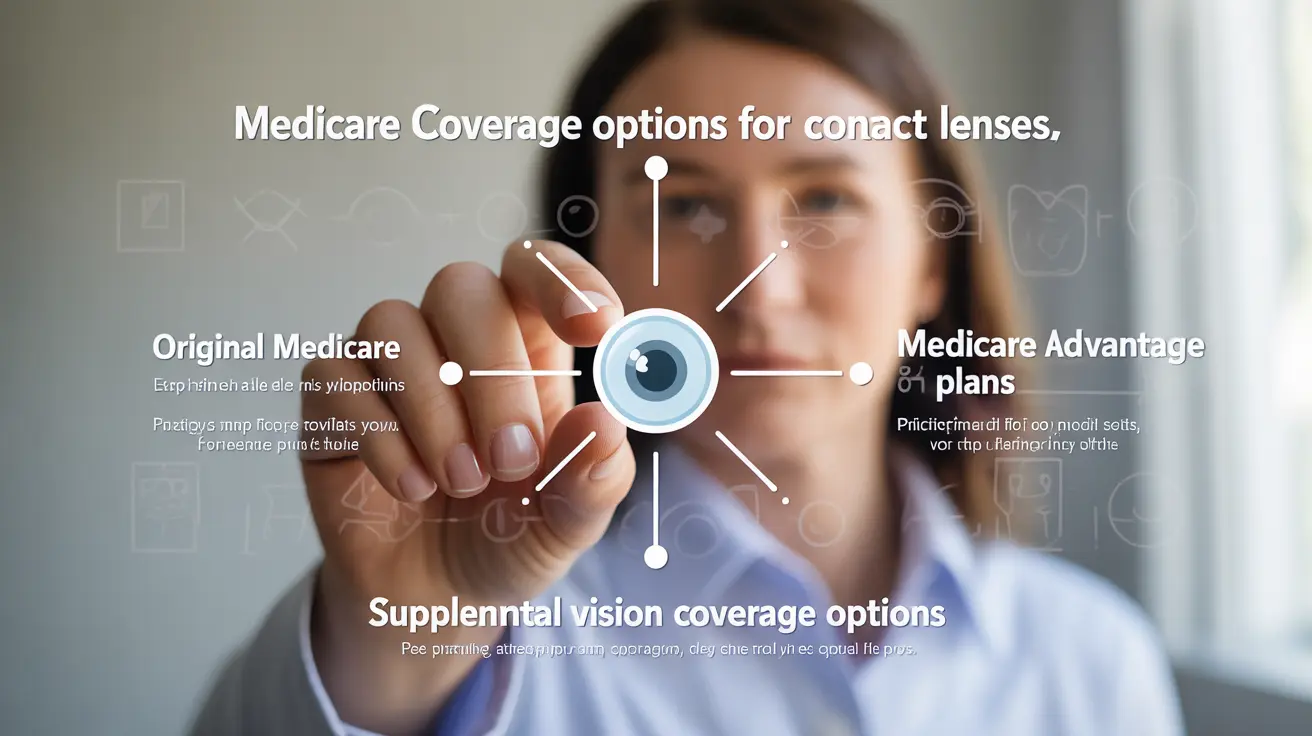Understanding Medicare's coverage for contact lenses can be complex, especially since vision care benefits vary depending on your specific plan and circumstances. While Original Medicare has limited vision coverage, there are several important scenarios and options to consider when seeking coverage for contact lenses.
This comprehensive guide will explain when Medicare covers contact lenses, explore alternative coverage options, and help you understand how to access vision benefits through various Medicare plans.
Original Medicare and Contact Lens Coverage
Original Medicare (Parts A and B) generally does not cover routine vision care, including contact lenses for standard vision correction. However, there are specific medical circumstances where Medicare Part B will provide coverage for contact lenses.
Coverage After Cataract Surgery
Medicare Part B covers one pair of corrective lenses (either eyeglasses or contact lenses) following cataract surgery with an intraocular lens implant. This coverage includes:
- Standard frames or contact lenses
- Basic lens fitting services
- Necessary adjustments
- One replacement within the first year if needed
Medical Necessity Coverage
Medicare may also cover contact lenses if they're deemed medically necessary for specific eye conditions that can't be corrected with standard eyeglasses, such as:
- Keratoconus
- Irregular astigmatism
- High refractive errors
- Other specific medical conditions
Medicare Advantage Plans and Vision Coverage
Medicare Advantage (Part C) plans often provide more comprehensive vision benefits than Original Medicare. These plans typically include:
- Routine eye exams
- Contact lens fittings
- Annual allowance for contact lenses
- Additional vision services
Coverage details and costs vary by plan and provider, so it's essential to review specific plan benefits when selecting coverage.
Supplemental Vision Coverage Options
If you need routine contact lenses and have Original Medicare, several options are available to help cover costs:
Stand-alone Vision Insurance
Private vision insurance plans can provide coverage for:
- Annual eye exams
- Contact lens fittings
- Yearly contact lens allowance
- Discounts on additional purchases
Vision Discount Programs
These programs offer reduced rates for vision services and products, including:
- Discounted contact lens purchases
- Reduced fees for eye exams
- Savings on lens fittings and adjustments
Tips for Affordable Contact Lens Coverage
To maximize your vision benefits and minimize out-of-pocket costs:
- Compare Medicare Advantage plans during open enrollment
- Consider combining coverage options
- Look for mail-order contact lens services
- Ask about bulk purchasing discounts
- Investigate manufacturer rebate programs
Frequently Asked Questions
Does Medicare cover contact lenses for routine vision correction? No, Original Medicare does not cover contact lenses for routine vision correction. Coverage is only provided in specific medical situations, such as after cataract surgery.
How do I get coverage for contact lenses under Medicare Advantage plans? You can obtain contact lens coverage by enrolling in a Medicare Advantage plan that includes vision benefits. Review different plans during open enrollment to find one that offers the vision coverage you need.
What vision benefits are covered by Medicare after cataract surgery? Medicare Part B covers one pair of corrective lenses (either eyeglasses or contact lenses) after each cataract surgery with an intraocular lens implant, including basic fitting services and adjustments.
What are my options for affordable contact lens coverage if I'm on Original Medicare? Options include purchasing stand-alone vision insurance, joining vision discount programs, using mail-order services, or enrolling in a Medicare Advantage plan with vision coverage.
Can I purchase additional vision coverage to supplement my Medicare plan? Yes, you can purchase separate vision insurance or enroll in vision discount programs to supplement your Medicare coverage. These options can help cover routine vision care and contact lenses.




